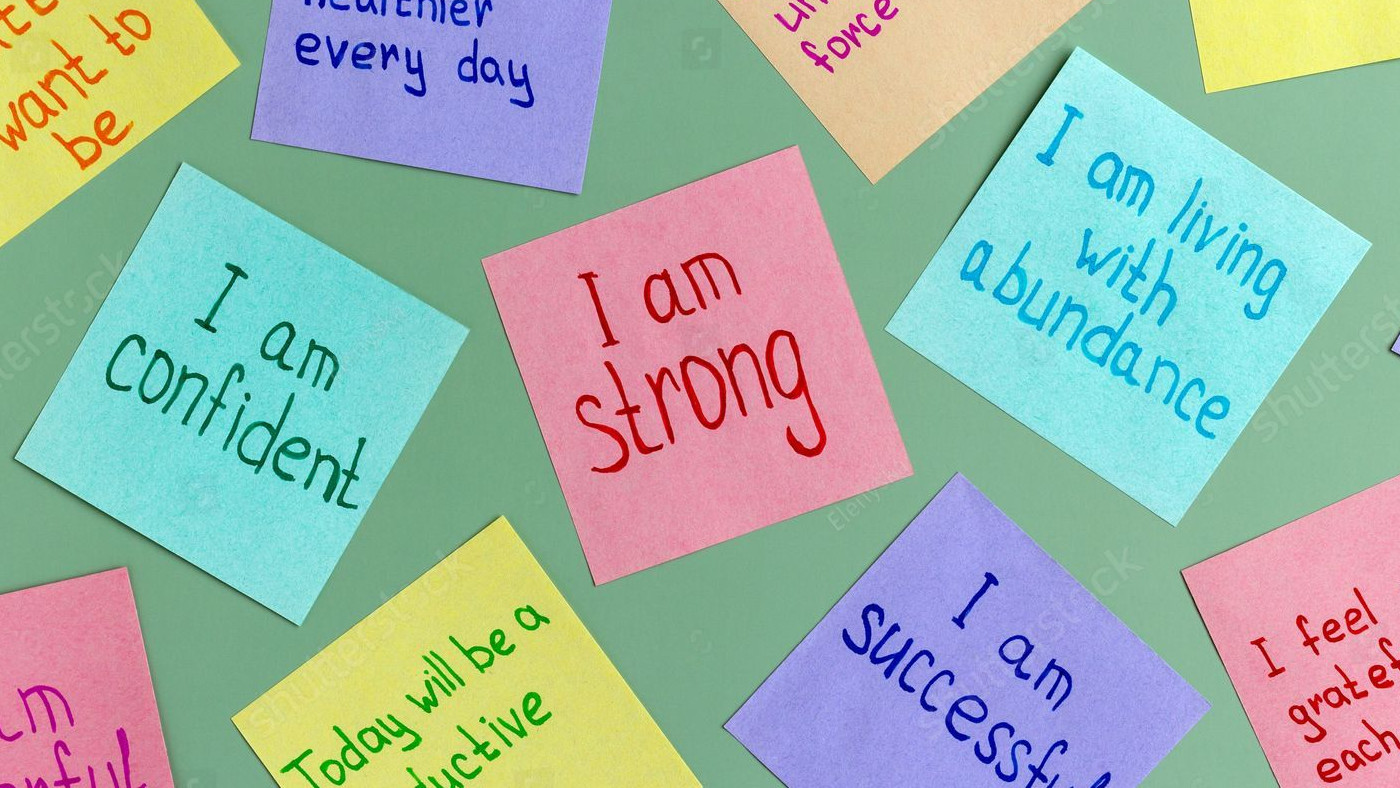The universe has you on speed dial for every possible misfortune. You’re watching your career prospects fizzle out in an oversaturated job market while you’re juggling multiple gig economy jobs just to make ends meet. Dating and sex is seemingly only for the top 10% anymore, and on top of it all, you’re grappling with the dread of having no hope of ever owning a livable retirement or even your own home.
But rather than succumbing to despair, why not turn life’s lemons into lemonade? In this guide, we’ll explore unconventional — but surprisingly effective — ways to navigate life’s rough patches. While some of these methods may seem paradoxical or even counterintuitive, we’ve backed it all up with links to the science behind them.
Gaslight yourself

Tell yourself that you’re essentially a mythic hero in training. Reframe every setback as a plot twist in your epic saga, convincing yourself that each struggle is a step towards your inevitable triumph. Tell yourself that the universe is just testing you and that it is making you stronger — every hardship is a calculated move to build your character. Keep a journal of your, well, journey, and periodically look back on it to marvel at your resilience.
Research in positive psychology suggests that framing adversity as an opportunity for personal growth can lead to greater resilience and psychological well-being (Tedeschi & Calhoun, 2004). By successfully gaslighting yourself that hardships are tests that strengthen you, you will develop a mindset that promotes strength and continuous self-improvement.
Laugh maniacally
Whenever things get really tough, or even for no reason at all, just start laughing like a comic book villain. It works for Tom Cruise. It’s not creepy; it’s therapeutic! If you find forced maniacal laughter difficult to do, you can join laughter yoga groups or attend laughter therapy sessions where peer pressure will help you over the edge.
Studies on laughter therapy suggest that even forced laughter can stimulate endorphin release and activate positive emotional responses.
Embrace your inner drama queen
Go full Shakespearean on your miseries. The world is your stage, and every setback is an epic tragedy. Soliloquize about your woes until everyone around you starts auditioning for parts in your life story. Channel your inner Hamlet and deliver monologues about your existential crises to anyone who will listen. The cathartic release of airing your grievances dramatically might just make you feel better.
Studies on expressive writing show that articulating emotions, even in an exaggerated manner, reduces stress and improves emotional well-being (Pennebaker & Chung, 2011).
Drama queen advanced mode: develop a superiority complex

Convince yourself that you’re the only one going through real hardship. Your struggles are the stuff of legends, far surpassing the mundane challenges of the mere mortals around you. This mindset can help you feel uniquely important. Embrace the idea that your pain is profound and unparalleled. Write wordcel essays about your suffering and share them in niche online forums where others can marvel at the depth of your character. Who knows, you might even inspire someone else to view their own struggles as trivial in comparison.
While not traditionally beneficial, adopting a mindset of uniqueness in hardship can sometimes provide psychological benefits. Research on comparative suffering suggests that viewing one’s own struggles as more significant can paradoxically enhance feelings of self-worth and resilience in some individuals. However, balance is crucial to avoid alienating others and fostering empathy.
Create an imaginary nemesis
Invent a fictional adversary responsible for all your troubles. Blame them for everything from your lost keys to your existential dread. Bonus points if you give them a menacing name like “shadow people,” “abusive dad,” or “the moneygrabblers” and fun backstories like living in your walls.
This technique allows you to externalize your problems, giving you a tangible enemy to fight against. When things go wrong, shake your fist and curse their name. This not only provides comic relief but can also be a surprisingly effective coping mechanism.
Psychological studies suggest that blaming difficulties on external factors (even imaginary ones) can reduce feelings of personal responsibility and alleviate distress (Taylor and Brown, 1988). By personifying your struggles, you create distance and perspective, potentially reducing their emotional impact.
Delight in denial and delusion

Repeat phrases like “I’m not in denial, I’m just selective about the reality I accept.” Denial isn’t just a river in Egypt — it’s your new best friend. Craft a series of affirmations that reinforce your preferred version of reality. Recite them daily, especially during moments of crisis! Consider printing them out and plastering them around your living space. You can even join online communities of like-minded individuals who share your commitment to selective reality acceptance.
Affirmations being able to influence self-perception and behavior is solid science. Research in self-affirmation theory indicates that repeating positive affirmations, even if unrealistic, can enhance self-esteem and promote adaptive behavior (Steele, 1988).
Turn your woes into a successful social media career
Convince yourself that every woe belongs to your new ‘persona’ that thrives on public displays of misfortune. Chronicle every single one of your hardships on social media with the kind of dramatic flair that makes the reader feel blessed in comparison. Engage with your audience by responding to their comments and sharing their own tales of woe. Actively adopt the worst possible advice your online friends give you and follow it to the letter, even if it’s something patently stupid like feng shui-ing your refrigerator. Document your ill advised journey and the ever more exotic troubles resulting from it.
You will become a viral sensation, and if you keep it up — a social media influencer. You’ll be hawking online therapy companies and barely legal gambling schemes in no time. Cash money!
Also, studies on social media use and mental health suggest that sharing personal challenges online can foster empathy, social support, and a sense of community (Verduyn et al., 2015). Engaging authentically with followers can provide emotional catharsis and reduce feelings of isolation during difficult times.
Convince yourself that every setback and tragedy will only make your future autobiography sell better
The fact of the matter is that each hardship is adding rich, dramatic content to your future bestselling autobiography. Visualize book signings where fans marvel at the gritty, inspiring stories of your past. The blurbs will read, “A tale of unparalleled adversity and triumph.” This mindset turns every mishap into a potential chapter, transforming pain into profit.
So start jotting down detailed notes and vivid descriptions of your struggles. Not only will this provide you with material for your book, but it will also help you see your life as a grand narrative full of peaks and valleys, inevitable leading to success.
Join a cult

Find a new age self-help group or cult and dive in with gusto. Convince yourself it’s all for laughs, even as you start adopting their mantras and rituals. At least you’ll have new friends to share your misery with, possibly even free lodging. Who knows, you might actually find some of their teachings beneficial — or entertaining.
Research on group dynamics shows that participating in shared rituals and beliefs can foster a sense of belonging and social cohesion (Tajfel & Turner, 1979). Joining a cult may offer emotional support and shared experiences during tough times — but you should obviously set certain boundaries and not let the cult use you for money or sex. This is about you, not some fucking whackos.
Create a playlist of the saddest songs and wallow in misery
Science thinks it’s time to revel in your misery with the dramatic backing track it deserves. Curate a playlist that captures the essence of your despair and listen to it during your lowest moments — or just all the time.
There’s something cathartic about wallowing in sorrow, and music is the perfect companion because it can both evoke and regulate emotions. Research says that listening to sad music can facilitate emotional catharsis and provide a sense of solidarity with others who experience similar feelings (Garrido & Schubert, 2013).
P.S. support great journalism of color by buying our swag:
But there's more. Check out these bussin related stories:
- Health
 7 dangerous things you had no idea could happen when you shave your pubes There is good evidence indicating you shouldn't remove your hair down there at all.
7 dangerous things you had no idea could happen when you shave your pubes There is good evidence indicating you shouldn't remove your hair down there at all. - Health
 Confronting my vagina: do I have vaginismus? I've come to terms with the fact that my vagina is plotting against me. So do I have a sexual dysfunction called vaginismus?
Confronting my vagina: do I have vaginismus? I've come to terms with the fact that my vagina is plotting against me. So do I have a sexual dysfunction called vaginismus? - Health
 Chart the Feng Shui energy of your home with this simple method Learn how to chart energy centers in your home and balance them to attract into your life your deepest aspirations.
Chart the Feng Shui energy of your home with this simple method Learn how to chart energy centers in your home and balance them to attract into your life your deepest aspirations.


Funny but true. I just signed up for a billion years of service in the Sea Org.
Sissy hypno